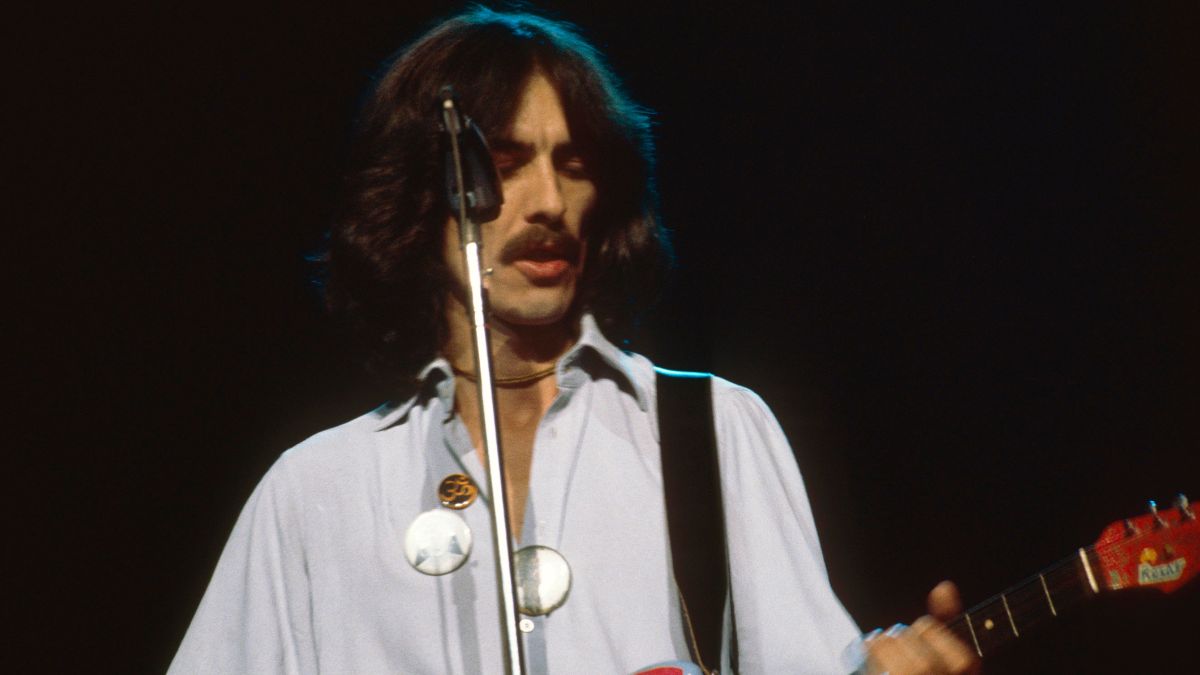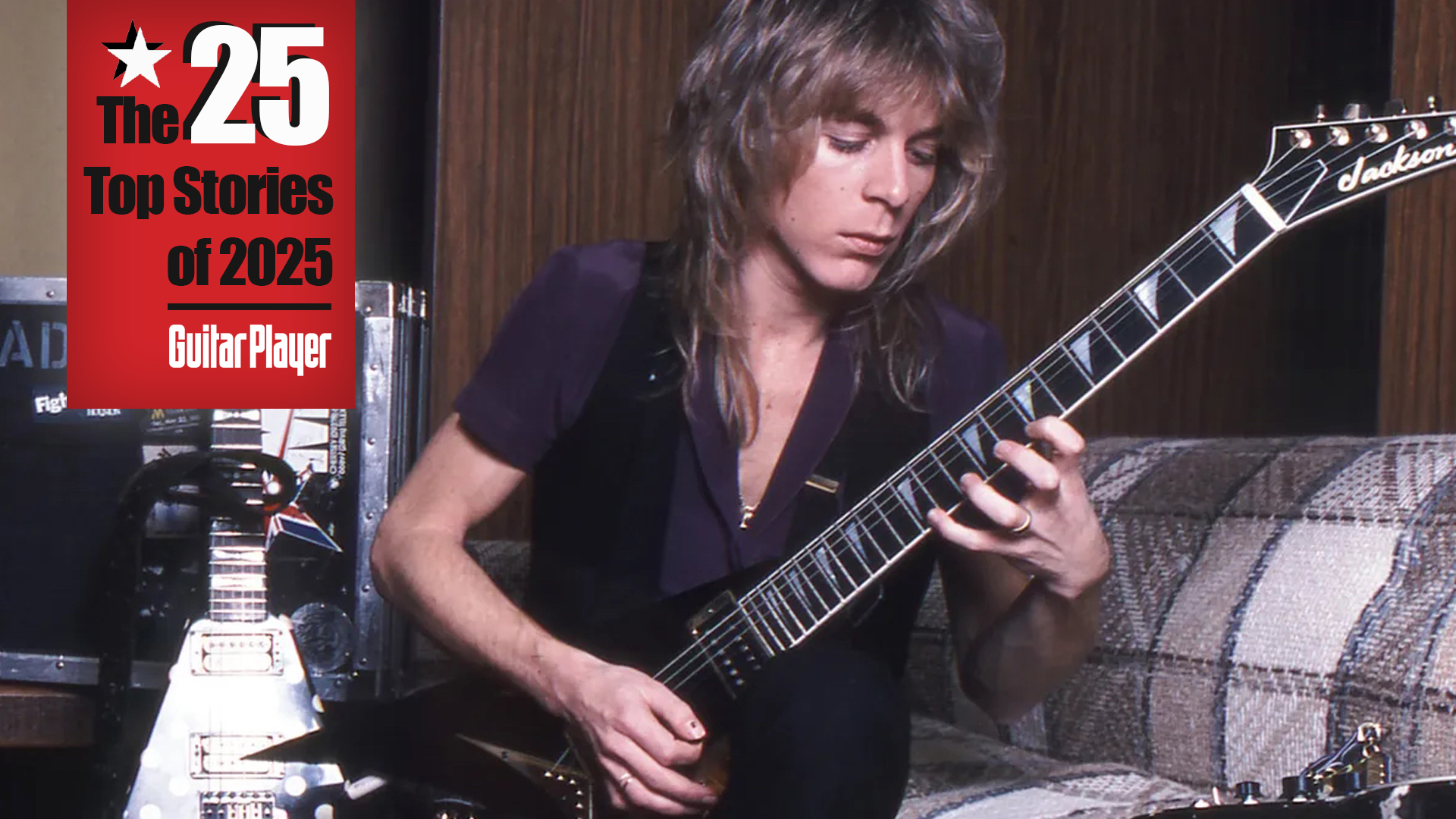“He was opening up new worlds there.” George Harrison said this was the “greatest guitar solo” of all time — and told us the player who left a lasting impression on him
As the Beatles return to the screen this week, we recall the guitarist whose gear choices, chord changes and lead lines inspired the Quiet Beatle most of all

The Beatles' music and career returns to the spotlight this week with the re-release of the group's 1995 Anthology project. The docu-series returns to screens over the Thanksgiving holiday with a new Episode 9 that relates the reunion of Paul McCartney, George Harrison and Ringo Starr in the 1990s and the more recent creation of "Now & Then," the song McCartney and Starr completed from a John Lennon demo the other three former Beatles first worked on in 1995.
While Anthology will serve to remind everyone that the Fab Four were trailblazers, there was a time when the Liverpudlians were doing the idolizing. For George Harrison, in particular, no one was better than Buddy Holly.
To be clear, Holly held sway over the entire group. Lennon and founding bassist Stuart Sutcliffe took inspiration for the Beatles' name from Holly's group, the Crickets. His songwriting style would be equally inspirational to Lennon and Paul McCartney's early compositions.
But it was Harrison who, as the group's lead guitarst, felt Holly's influence most keenly in his playing.
“I think one of the greatest people for me was Buddy Holly,” he told Rock Around the World in 1974. “He was very good — exceptionally good.”
Harrison recalled trying to learn guitar with the help of a book that was far from complete. "A few months or a year later, I found, ‘Those stupid buggers have given me a manual that doesn’t show me all the notes!’ " he complained. "So then I had to start learning again.”
Holly’s influence was paramount to filling in the gaps in his knowledge.
All the latest guitar news, interviews, lessons, reviews, deals and more, direct to your inbox!
“Buddy Holly was the first time I ever heard A to F-sharp minor,” he told the BBC in 1974. “Fantastic! He was opening up new worlds there. And then A to F, A, D, E, F and F# minor. He was sensational.”
Speaking to Guitar Player 13 years later for an interview in the magazine's November 1987 issue, Harrison showed that his passion for Holly’s music hadn’t diminished. He told contributing writer Dan Forte how he had created the emotive volume-swelling chords on the Beatles' 1965 tracks "Yes It Is," "Wait" and "I Need You": Unable to coordinate strumming the chords and raising his guitar's volume control at the precise moment, Harrison enlisted Lennon to turn the knob.
“So some of those," he said, "I played the part, and John would kneel down in front of me and turn my guitar's volume control.”
It was Forte who pointed out that Holly had done something similar for his 1957 hit "Peggy Sue." Unable to flick his pickup switch in time for his solo, Holly had Crickets guitarist Niki Sullivan move the switch from the neck position to the bridge position and back at the crucial junctures.
“Yeah, that's great stuff, isn't it?” Harrison replied. “That's still one of the greatest guitar solos of all time. Right till this day I could play you the 'Peggy Sue' solo any time, or 'Think It Over' or 'It's So Easy.' I knew all them tunes.”
And lest anyone forget, Harrison purchased his first electric guitar — a Futurama — in 1958 because it looked similar to the Fender Stratocaster that Holly played. Harrison would use the Futurama through many of the Beatles' early Hamburg gigs and on their first professional recordings with Tony Sheridan in June 1961. Although Harrison thought little of the guitar, it's now expected to fetch between $600,000 and $800,000 when it heads to the auction block in November.
Throughout his career, Harrison's admiration for other musicians proved as strong as ever. Former Deep Purple guitarist Ritchie Blackmore has recently recalled the time in 1984 when Harrison sheepishly asked to jam with the band. Together, they treated an Australian crowd to a rendition of a Little Richard classic, with Harrison so deeply in his element that he didn’t notice Blackmore was playing in the wrong key.
The Beatles Anthology begins streaming with Episodes 1–3 on Wednesday, November 26 on Disney+, followed by Episodes 4–6 on Thursday, November 27 and Episodes 7–9 on Friday, November 28.
A freelance writer with a penchant for music that gets weird, Phil is a regular contributor to Prog, Guitar World, and Total Guitar magazines and is especially keen on shining a light on unknown artists. Outside of the journalism realm, you can find him writing angular riffs in progressive metal band, Prognosis, in which he slings an 8-string Strandberg Boden Original, churning that low string through a variety of tunings. He's also a published author and is currently penning his debut novel which chucks fantasy, mythology and humanity into a great big melting pot.


